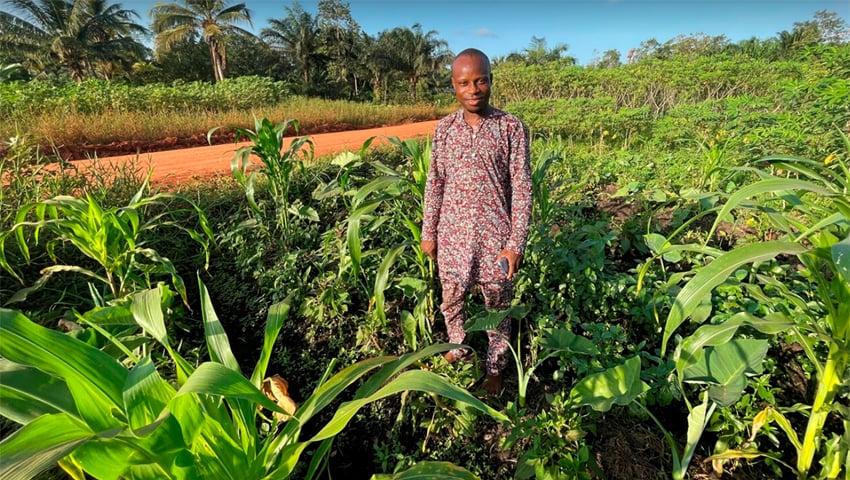A research team including scientists from Scotland’s Rural College (SRUC) has won a coveted National Academy of Sciences’ 2023 Cozzarelli Prize, alongside five other winners.
The SRUC scientists, together with researchers from the World Vegetable Centre, Centre for International Forestry Research-World Agroforestry (CIFOR-ICRAF), University of Abomey-Calavi and National Taiwan University, won the award for their work exploring the role forgotten food crops could play in supporting nutrition and climate resilience in sub-Saharan Africa.
The research, which won in the Applied Biological, Agricultural and Environmental Sciences category, underscores the importance of diversifying food production as the climate changes – and drawing on biodiversity resources to do so.
The team looked at how to diversify sub-Saharan Africa’s food systems away from a reliance on maize, rice, cassava and yams, to support more climate resilient and nutritious food systems in the future.
It identified 58 forgotten food crops that provide complementary micronutrient contents suitable for integration into staple cropping systems, under current and projected climatic conditions.
Ian Dawson, one of the authors of the study who works for SRUC and CIFOR-ICRAF, said, “We looked at how Africa’s traditional or ‘forgotten’ food crops could diversify the country’s food systems by using a combination of climate niche modelling and nutritional data.
“It’s heartening to see this research being recognised and celebrated. Although our study focused on Africa, the same methods could be used to explore opportunities for crop diversification in Europe and elsewhere as the climate changes. So that is something to think about in – and for – the future.”
The research found that responding to climate change requires multiple interventions in sub-Saharan Africa’s crop production.
Researchers said that, “The adaptation of major staples to new conditions through breeding is essential, but achieving this adaption is generally not straightforward when factoring in both broad climatic trends and the extreme weather events caused by climate change.
“The diversification of cropping systems of major staples and their replacement with other crops is an alternative response to promote greater resilience, with the study indicating the opportunities that Africa’s forgotten food crops provide if following this intervention pathway.
“In practice, a full response to ensure sufficient food supply in both quantity and quality will require breeding interventions for major staples, diversification of cropping systems of major staples or their replacement, and the breeding of the forgotten food crops that can complement existing major staples so that they better fit in cropping systems.”
The Cozzarelli Prize honours the former Editor-in-Chief of PNAS, Nicholas R. Cozzarelli, and each year “acknowledges papers which reflect scientific excellence and originality” in six different categories published in the journal.
The other categories cover Physical and Mathematical Sciences, Biological Sciences, Engineering and Applied Sciences, Biomedical Sciences and Behavioural and Social Sciences.
The winners will be recognised at an awards ceremony later this month, during the NAS Annual Meeting.
